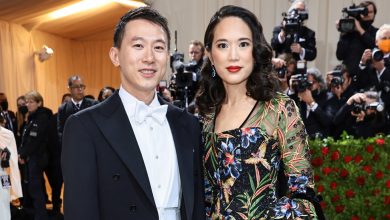Republicans Step Up Attacks on Scientist at Heart of Lab Leak Theory

House Republicans demanded on Wednesday that the president of a virus-hunting nonprofit group be criminally investigated and barred from federal research funds, a sharp escalation in their campaign against scientists in the United States who Republicans have suggested either had links to the origin of the Covid-19 pandemic or obscured its true beginnings.
During a heated three-hour hearing of the Select Subcommittee on the Coronavirus Pandemic, Republican lawmakers at times raised their voices at the nonprofit’s leader, Peter Daszak, and said that they believed that he would fare poorly as a defendant in criminal court.
The nonprofit, EcoHealth Alliance, which receives federal funding to study global threats from wild animal viruses, has faced suspicion over a proposal that it made in 2018 to team up with Chinese scientists on novel coronavirus experiments that Republicans believe could have led to the pandemic, despite that project’s never receiving funding.
But in a report and in extensive questioning on Wednesday, the Republicans offered no new information suggesting that EcoHealth Alliance or Dr. Daszak were involved in the coronavirus outbreak. And they did not produce any evidence pointing directly to a coronavirus leak from a lab in China, with or without EcoHealth’s involvement, a hitch in their yearslong effort to implicate Chinese and American scientists in the beginnings of the pandemic.
Democrats on the subcommittee seized on the dearth of new evidence, even as they echoed Republican concerns that Dr. Daszak had not been forthcoming about his collaborations with Chinese scientists.
The subcommittee, which is led by Republicans, has reviewed nearly a half-million pages of documents and conducted over 100 hours of private interviews in the course of investigating the origin of Covid, Representative Raul Ruiz of California, the panel’s top Democrat, said on Wednesday.
But, Mr. Ruiz said, the subcommittee has found “no evidence” linking the pandemic to EcoHealth’s research. And he added that the investigation had not “meaningfully advanced our understanding of the pandemic’s origins.” Rather, he said, the subcommittee’s work now “appeared to be an effort to weaponize concerns about a lab-related origin to fuel sentiment against our nation’s scientists and public health officials for partisan gain.”
Republicans, for their part, pledged that their investigation would continue. They have called Dr. Anthony S. Fauci, the former director of the National Institute of Allergy and Infectious Diseases, to testify next month. A Republican member of the subcommittee pushed in January for Dr. Fauci to be jailed.
“I support work that will make the world safer,” the chairman of the subcommittee, Representative Brad Wenstrup of Ohio, a Republican, said as he opened the hearing on Wednesday. “Our concern is that this research and research similar does the opposite,” he said, referring to EcoHealth’s collaborations with Chinese scientists. “It puts the world at the risk of a pandemic.”
Republicans and Democrats alike hammered Dr. Daszak on Wednesday for what they described as a long list of misrepresentations and evasions. They suggested, among other things, that he was being untruthful about why he had been late to submit a required report to health officials before the pandemic and that he had cast research proposals in ways that helped his chances of receiving funding but misled reviewers. Dr. Daszak strongly denied those charges.
Much of the suspicion centered on an EcoHealth request made in 2018 for Defense Department funding to collect and experiment on coronaviruses with novel traits that would make them highly transmissible in humans.
EcoHealth’s proposed partners included the Wuhan Institute of Virology, a premier site for coronavirus research in China. That institute’s presence in the city where the Covid outbreak began was at the heart of theories that the virus had first infected people as a result of research activities.
Republicans said that notes on a draft of the proposal from 2018 suggested Dr. Daszak was trying to mislead American officials about the extent of Chinese involvement in the project. Dr. Daszak denied that, saying that he had sought — and received — approval from American defense officials for Chinese scientists to participate. Dr. Daszak said the research had never been carried out.
“It’s utterly irrelevant to the origins of Covid,” Dr. Daszak said of the proposal. He acknowledged that Wuhan scientists could have been conducting research independently that he was not aware of.
The Wuhan institute’s biosafety practices have intensified concerns about the possibility of a lab leak. On Wednesday, Republicans doubled down on worries about its lab’s protocols, citing private emails and comments in a closed-door congressional interview by Ralph Baric, a virologist at the University of North Carolina who has collaborated with EcoHealth and the Wuhan institute.
In an email to Dr. Daszak in 2021, Dr. Baric said the Wuhan institute had failed to conduct virus experiments under appropriately safe conditions, and called the idea that they were taking proper precautions a “load of BS.” Still, Dr. Baric told Dr. Daszak in a separate email that year that the coronavirus had most likely jumped from animals to people outside of a lab. He cited the absence of any evidence that the Wuhan institute possessed a virus related closely enough to the one that caused the pandemic.
There remains no evidence that the Wuhan institute stored any virus that could have become the coronavirus and caused Covid, with or without scientific tinkering, researchers have said.
Scientists who specialize in tracing outbreaks have published analyses of early cases and viral genomes that they say point to the pandemic’s starting at an illegal wild-animal market in Wuhan. The presence of the coronavirus in samples from the market containing genetic material linked to raccoon dogs, they have said, is consistent with that scenario.
Dr. Daszak cited animal-borne disease threats on Wednesday in defending projects by EcoHealth, which works with collaborators around the world to identify and study dangerous viruses circulating in nature.
In April 2020, as EcoHealth came under attack from President Donald J. Trump, the group had a grant terminated by the National Institutes of Health. The grant was reinstated last year, but it does not provide funding for any research in China. The Biden administration has also taken steps to impose a 10-year ban on funding for the Wuhan Institute of Virology.
Republicans on Wednesday cited concerns about EcoHealth’s compliance with grant reporting requirements in arguing that EcoHealth, too, should be barred from receiving federal funds. The N.I.H. faulted the group in 2021 for failing to promptly report findings from studies on how well bat coronaviruses grow in mice. An internal federal watchdog agency chided the N.I.H. last year for failing to demand a progress report from EcoHealth that was two years late.
In an interview after the hearing, Mr. Wenstrup, the Republican subcommittee chair, said that oversight by health agencies was too weak. He called for the creation of criminal penalties for violating health agency protocols — “anything from a misdemeanor to a felony,” he said — as a way of better policing certain scientific research.



